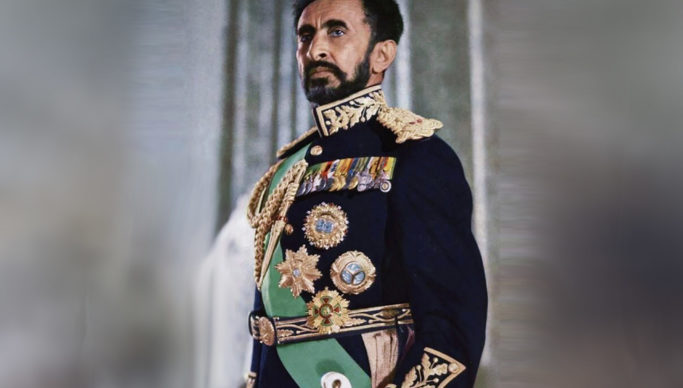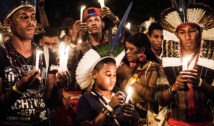
Brooklyn Rastafarians Commemorate Birthday of Emperor Haile Selassie I
- By Nathan Glover --
- 25 Jul 2023 --
There were no booming cannons or lavish banquets to celebrate the late emperor’s birthday, but as the sun dipped below the horizon on July 22, a serene scene unfolded on a vast lawn in Brooklyn’s Prospect Park. As priests chanted psalms and offered prayers accompanied by the rhythmic beat of drums, elders of the Nyabinghi Rastafari Order, one the oldest subgroups of the Rastafarian faith, assembled around a flickering fire in a tabernacle.
“In the fire, we cast all of our problems, our conflicts, our sins,” explained Dorrell Howard, one of the participants, referring to the ritual fire that would burn for three consecutive days. “It’s a purifying fire.”
It was the eve of the 131st anniversary of the birth of Ethiopian Emperor Haile Selassie I, whom the Rasta faith regards as the embodiment of God. Just how his birthday is observed varies among different Rasta communities, but for the some 1 million Rastas across the globe, it serves as a moment to come together and discuss Selassie’s life and achievements.
Howard, who goes by the name Bongo Thunder was at the ceremony with his 15-year-old son and fiancée, Spirituality. Thunder was raised in a Pentecostal church but embraced Rastafari 21 years ago after being introduced to it by a Rasta friend from Grenada. The emphasis on celebrating Blackness within the faith deeply resonated with him. To Thunder, Rastafari is not merely a religion; it embodies a way of life.
As he told Fiona André for her July 24 Religion News Service article, “I embrace it because of their love of Black unity and Black culture.”
According to Thunder, Rastafari influences every aspect of his life—from the way he speaks to how he dresses and eats. Moreover, it has significantly influenced his self-perception. “It instilled in me a great sense of pride.”
Bongo Thunder clarified that the ceremony’s purpose is to pass down Rastafari traditions and practices to the younger generations.
Rastafari originated in Jamaica during the 1930s, following the coronation of Selassie on November 2, 1930. Ethiopia holds great significance for many Rastas, including the Nyabinghi Rastafari Order, which places a strong emphasis on the repatriation to Africa of people of African descent.
Moreover, for Rastafarians, Selassie coronation symbolizes the fulfillment of a prophecy made in the 1920s by Jamaican political activist Marcus Garvey, a Black leader who established the first significant American Black nationalist movement (1919–26) in New York City’s Harlem: “Look to Africa when a Black king shall be crowned, for the day of deliverance is near.”
Haile Selassie I, originally known as Tafari Makonnen, was born in Ethiopia on July 23, 1892. Serving as the emperor of Ethiopia from 1930 to 1974, he aimed to modernize his nation and align it with mainstream post-World War II African politics.



















